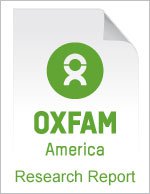
Impact of climate change on response providers and socially vulnerable communities in the US
Federal disaster programs, plans, and policies seldom address climate change or social vulnerability. Homeland security policy could be revised to accommodate climate change impacts on socially vulnerable populations.
Disaster mitigation discourse rarely refers to the vulnerability of communities affected by disasters. The planning assumptions driving domestic emergency management are derived from an assessment and understanding of risk (i.e., the likelihood that a particular type of natural disaster may occur and the expected severity of its effects should it occur).
For natural disasters, this assessment of risk is based on detailed modeling and analysis of historical data on the frequency and severity of all manner of disasters. In this report, we examine how homeland security policy could be revised to accommodate climate change impacts on socially vulnerable populations in the Mississippi Delta region and the Gulf Coast, building on the 2009 Oxfam America report, "Exposed: Social vulnerability and climate change in the US Southeast."


